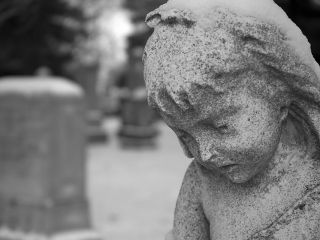Post-Traumatic Growth
Gains and Losses
A brief digression from the normal topics of this blog to acknowledge loss.
Posted October 21, 2012
Two years ago today, I learned that my mother had died unexpectedly. This was the first major loss I have experienced in my personal life. On October 9th, I experienced my first professional loss; Chris Peterson, one of the founders of my field, a pioneer who created the first classification of character, beloved friend and mentor to many, passed away. I hadn't seen Chris in a long time, and I hadn't had a substantive conversation with him in an even longer time, but it was still very sad.
What struck me the most about this experience was not the massive public outpouring of affection for Chris; that was, in a sense, very predictable. It was the stark contrast between the people who felt the drive to mourn publicly, and the people who did not. For Chris, I fell into the former category; after a brief period of shock and existential panic, I went into full-on helper mode. I have been hyperfocused on all of the things I could be doing to help those who were caught adrift: storytelling, coordinating, and collecting the stories of others. Thinking back to my mom's death, however, I fell into the latter category. I was paralyzed by the loss, and while I heard many of the things people were saying about my mother, it was very difficult to contribute to any sort of public grieving. I couldn't say much of anything at all.

I have spent some time musing over what makes a person fall into one category or the other. In the immediate aftermath of the death, my best guess is that closeness plays an important role. If the deceased was someone to whom you are very close, you are more likely to experience impaired functioning. Perhaps everyone who goes through a loss with a closed loved one feels the way I did. Where significant individual variation occurs, then, is in the long term; in time, some people move on despite their sadness, and others do not.
A lot of coping research focuses on meaning-making as a pathway to post-traumatic growth. Meaning-making, of course, is something that cannot often happen at the moment that a loss occurs; it is something that is built over time, as a person survives and possibly even, with time, thrives. I cannot speak for everyone, but meaning-making has certainly been an important part of how I have coped with my mother's death. In a sense, I still think it's terribly unfair that she died when she did, and so unexpectedly. I think of her and miss her every day. I honor her every chance I get. At the same time, I think about all of the ways I have grown and become stronger because she was no longer there to support me. I wonder if I might have ever grown in that way otherwise, and while I don't see it as a fair trade, I sometimes don't see it as a completely raw deal, either. I feel deeply guilty admitting that, which is, in my opinion, sad; meaning-making is an important tool for coping, but it's stigmatized in society (George Bonanno talks about this in his seminal article about resilience). Making some sort of positive meaning from my mother's death is the only way I have managed to cope with it. It doesn't detract from my sorrow at her loss; it just helps me keep going.
Anyway, I hope that those who were close to Chris Peterson are one day able to make meaning of his death. I feel guilty saying that, too, for a number of reasons. I wish it for them just the same.


